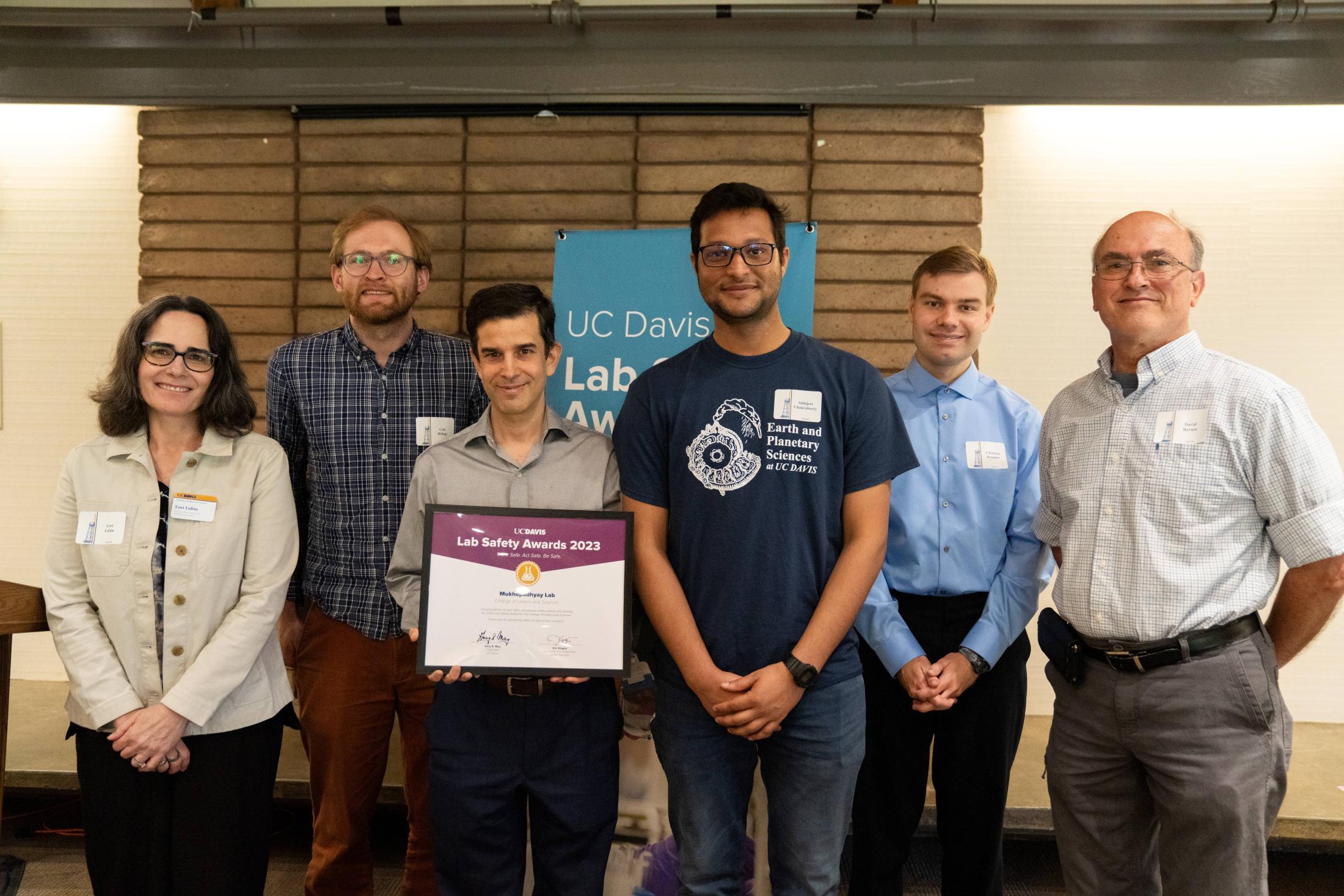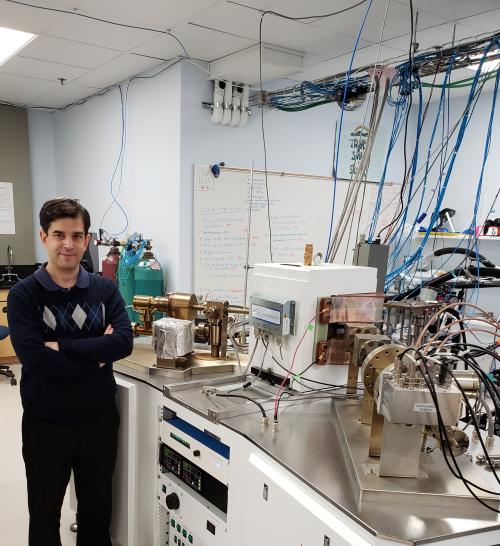The Mukhopadhyay Lab is this year's winner from the College of Letters and Science.
Dr. Sujoy Mukhopadhyay’s laboratory studies the formation and evolution of habitable planets. The lab's research centers on innovative developments in measuring noble gasses in a variety of Earth and planetary materials, as well as analyzing asteroid samples and conducting numerical modeling.
We aim to unravel the timescale associated with Earth’s formation, deduce what conditions were like on the early Earth, and ascertain the long-term exchange of gasses between the Earth’s surface and its interior,” said Mukhopadhyay.

Safety isn't a mere addition to the Mukhopadhyay Lab’s research culture; it's seamlessly woven into every aspect of their work. Every member undergoes comprehensive training under the direct guidance of the Principal Investigator. Group members are repeatedly reminded about the value of not cutting any corners and to think deeply and carefully about the experimental methodology of their research (which inevitably requires thinking through safety procedures).

Mukhopadhyay stresses the importance of never carrying out an experiment or procedure while someone is in a hurry or distracted. Group members are taught that deadlines come second to the quality of the research and to their safety.
As they move forward, the lab is rebuilding after the pandemic-induced downsizing. They are expanding to study early Solar System conditions and gearing up for analyses of asteroid samples returned to the Earth, such as through the Japanese Hayabusa2 mission to asteroid Ryugu.
“We are always happy to collaborate with other researchers, talk about the scientific enterprise and about our science with anyone and we continuously work to be a welcoming place for scientists from across the globe,” said Mukhopadhyay.